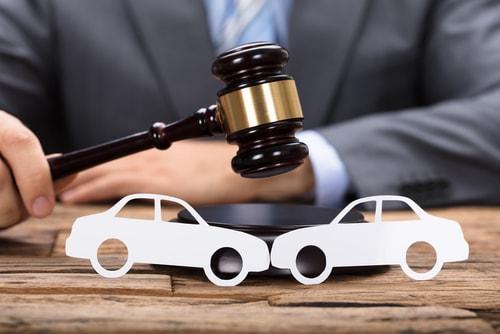Recent Blog Posts
Federal Court Ruling Highlights Complexity of Medical Marijuana Issue
 Imagine a scenario in which you are applying for a job. You pass the interview stage with flying colors, and the hiring manager is ready to bring you on immediately. The only thing you have left to do is pass a pre-employment drug screening. You are not worried because everything you currently take has been prescribed by a doctor who is licensed to practice in your state. When the screening results come back, however, they show that you have a particular drug in your system—one that you even told your prospective employer about beforehand. As a result of the test, your job offer is rescinded. Sounds pretty unfair, does it not? This is exactly what happened to a Connecticut woman in a situation that shows just how far we have left to go as our country tries to figure out exactly how to handle medical marijuana.
Imagine a scenario in which you are applying for a job. You pass the interview stage with flying colors, and the hiring manager is ready to bring you on immediately. The only thing you have left to do is pass a pre-employment drug screening. You are not worried because everything you currently take has been prescribed by a doctor who is licensed to practice in your state. When the screening results come back, however, they show that you have a particular drug in your system—one that you even told your prospective employer about beforehand. As a result of the test, your job offer is rescinded. Sounds pretty unfair, does it not? This is exactly what happened to a Connecticut woman in a situation that shows just how far we have left to go as our country tries to figure out exactly how to handle medical marijuana.
A Quick Background
In 2016, a woman was recruited and applied to work at a nursing home and rehabilitation center in Niantic, Connecticut. The woman’s interviews went well, and she was offered the position of Activities Manager pursuant to a pre-employment drug test. Prior to the screening, she informed the hiring manager that she was a registered patient under Connecticut’s Palliative Use of Marijuana Act (PUMA)—the state’s legal medical marijuana program. She had been in an accident in 2012 and was currently using a prescribed pill form of marijuana at night to help with post-traumatic stress disorder (PTSD) symptoms.
Motorcycle Rider Awarded $130,000 for Hit and Run Accident Involving a Mystery Driver
 When you are involved in a hit and run accident, it can be extremely difficult to collect compensation for the damages you incur. If those damages include bodily injury, you are likely to face even greater challenges. It is possible, however, to recover compensation for your injuries after a hit and run accident, as a case out of Waterbury, Connecticut recently demonstrated.
When you are involved in a hit and run accident, it can be extremely difficult to collect compensation for the damages you incur. If those damages include bodily injury, you are likely to face even greater challenges. It is possible, however, to recover compensation for your injuries after a hit and run accident, as a case out of Waterbury, Connecticut recently demonstrated.
The Accident in Question
The crash took place in August 2016 at an intersection in Waterbury. A 44-year-old man was riding his motorcycle when he was struck by a Toyota—knocking him to the ground and causing injuries to the rider’s back and right leg. According to court documents, the driver of the Toyota stopped briefly and then fled the scene.
A subsequent investigation into the crash determined that the driver of the Toyota was not the owner of the vehicle. In fact, the owner claimed she had no idea who would have been driving her car that day. She had reportedly left the car with an acquaintance for repairs, but an attorney for the plaintiff said that the owner’s account "was very sketchy." The driver of the vehicle was never positively identified for the purposes of this case. The Toyota owner’s insurance policy through State Farm paid out $20,000, but the payment fell far short of the losses that the rider had incurred.
Concern Growing Over Law Enforcement Collection of DNA from Juveniles
 Under the current law in Connecticut, anyone who is convicted of a felony is required to provide a sample of his or her DNA to be cataloged in the state’s DNA database. In 2016, the Connecticut Supreme Court even ruled that prison and law enforcement officials were permitted to use reasonable force to obtain the DNA sample when a convict refuses to cooperate.
Under the current law in Connecticut, anyone who is convicted of a felony is required to provide a sample of his or her DNA to be cataloged in the state’s DNA database. In 2016, the Connecticut Supreme Court even ruled that prison and law enforcement officials were permitted to use reasonable force to obtain the DNA sample when a convict refuses to cooperate.
While there has been debate over whether the collection of such samples constitutes a violation of privacy, the law and the Supreme Court ruling only apply to individuals who have already been convicted of a serious crime. Meanwhile, reports indicate that law enforcement officials in Connecticut are asking young men and women—including juveniles—to give DNA samples without their parents’ consent or knowledge.
A Cause for Worry
Earlier this month, lawmakers in California passed legislation that makes it illegal for police officers to obtain DNA from a minor without either permission from the minor’s parent or guardian or a court order. The law was widely regarded as a response to allegations of the police in San Diego targeting young African-Americans for DNA collection. Advocates are pushing for similar laws in other states as well.
Florida Supreme Court Rules Against Insurer in Bad Faith Case
 Drivers throughout the country are generally required to carry liability insurance that is designed to protect them in the event of an accident. While most drivers realize that insurance carriers are for-profit companies, it is reasonable to believe that an insurance company will do its best to protect their customers when an accident occurs—regardless of who was at fault for the crash. Unfortunately, however, such is not always the situation, as a recent decision by the Florida Supreme Court clearly demonstrates.
Drivers throughout the country are generally required to carry liability insurance that is designed to protect them in the event of an accident. While most drivers realize that insurance carriers are for-profit companies, it is reasonable to believe that an insurance company will do its best to protect their customers when an accident occurs—regardless of who was at fault for the crash. Unfortunately, however, such is not always the situation, as a recent decision by the Florida Supreme Court clearly demonstrates.
A Tragic Accident
The case began with a fatal car accident in August 2006 in which one man was killed. The at-fault driver had an auto insurance policy through GEICO with a liability limit of $100,000. According to court records, GEICO advised the driver that while there was coverage available, the claim against him would likely exceed his policy limits and that he had the right to hire an outside lawyer.
Study Casts Serious Doubts on the Accuracy of DNA Analysis
 Thanks to television shows like CSI: Crime Scene Investigation, Law & Order, their respective spin-offs, and similar programs, the average person tends to have an unrealistic view of criminal forensics. The limitations of television require such shows to compress months of police work and lab testing into 60 minutes—less if you are not counting commercial breaks. Additionally, the accuracy of the labs on these shows is rarely, if ever, questioned. In reality, however, certain forensic testing processes may not be as accurate as we have been led to believe, including the near-sacred area of DNA testing.
Thanks to television shows like CSI: Crime Scene Investigation, Law & Order, their respective spin-offs, and similar programs, the average person tends to have an unrealistic view of criminal forensics. The limitations of television require such shows to compress months of police work and lab testing into 60 minutes—less if you are not counting commercial breaks. Additionally, the accuracy of the labs on these shows is rarely, if ever, questioned. In reality, however, certain forensic testing processes may not be as accurate as we have been led to believe, including the near-sacred area of DNA testing.
A Troubling Study
In a disturbing study, researchers at the National Institute of Standards and Technology tested the accuracy of 108 separate crime labs, including 105 in the United States and three in Canada. To do so, the team sent the same mixture of DNA to each lab and asked the labs to compare the mixture to DNA taken from three known “suspects.”
Pre-Existing Injuries Could Complicate Your Personal Injury Case
 When you are injured in a car crash, slip and fall accident, or any other type of accident caused by the actions or negligence of another party, you are generally entitled to collect compensation for your injuries. This means that determining the severity of your injuries is an important part of the process.
When you are injured in a car crash, slip and fall accident, or any other type of accident caused by the actions or negligence of another party, you are generally entitled to collect compensation for your injuries. This means that determining the severity of your injuries is an important part of the process.
If you sustained injuries to a part of your body that has never been seriously hurt before, it is reasonable to assume that any damage was the result of the accident. If, however, you sustained injuries to a part of your body that had been hurt before, it can be difficult to know for sure what damage was caused by the accident and what damage had been done previously. Pre-existing injuries can present serious complications in your pursuit of full compensation, but it is possible to collect in spite of them.
Jury Awards $228,000 Despite Prior Injuries
ACLU Report Criticizes Modern-Day Debtors’ Prisons
 Did you know that you could end up in jail if you cannot pay your bills? This does not even refer to court-imposed fines or court-ordered obligations like child support. You could find yourself in jail over private debts such as student loans, medical bills, and unpaid rent. Now, you may be wondering how this is possible considering that debtors’ prisons were outlawed in the United States nearly 200 years ago. The answer is that private companies have found a loophole in the laws of dozens of states that allows them to use the threat of incarceration to generate payment of outstanding debt—a practice that the American Civil Liberties Union (ACLU) says criminalizes poverty.
Did you know that you could end up in jail if you cannot pay your bills? This does not even refer to court-imposed fines or court-ordered obligations like child support. You could find yourself in jail over private debts such as student loans, medical bills, and unpaid rent. Now, you may be wondering how this is possible considering that debtors’ prisons were outlawed in the United States nearly 200 years ago. The answer is that private companies have found a loophole in the laws of dozens of states that allows them to use the threat of incarceration to generate payment of outstanding debt—a practice that the American Civil Liberties Union (ACLU) says criminalizes poverty.
A Troubling Report
Technically, debtors’ prisons are illegal in the United States and have been since 1833. In recent years, however, private companies have begun "using the criminal justice system to punish debtors and terrorize them into paying, even when a debt is in dispute or when the debtor has no ability to pay," says a new report from the ACLU. According to the report, tens of thousands of warrants are issued each year in relation to unpaid private debts, but it is impossible to determine the exact number because court records do not usually track this category of warrants.
Auto Repair Shop to Pay $335,000 for Brake Failure on Highway
 It is a scene that is often portrayed in Hollywood thriller movies: a person is driving at highway speeds when they need to apply the brakes. Instead of the slowing the car, however, the brake pedal sinks to the floor, all but completely useless. For a West Hartford woman, this unlikely scenario became all too real when the brakes in the car she was driving suddenly stopped working, leading to a serious accident.
It is a scene that is often portrayed in Hollywood thriller movies: a person is driving at highway speeds when they need to apply the brakes. Instead of the slowing the car, however, the brake pedal sinks to the floor, all but completely useless. For a West Hartford woman, this unlikely scenario became all too real when the brakes in the car she was driving suddenly stopped working, leading to a serious accident.
A Scary Situation
The incident occurred in July of last year on Interstate 84 in West Hartford. The woman had just picked up her daughter’s 1964 Chrysler New Yorker at a repair shop in Clinton. On that particular day, the repair shop fixed a flat tire on the classic car. The same shop had serviced the New Yorker on at least 10 separate occasions in the 15 months leading up to that day.
After fixing the flat, the repair shop released the car to the woman, representing that it was safe to drive and in sound mechanical condition. In reality, however, there was a leak in the left rear brake assembly. The problem became evident when the woman tried to slow the car to exit the interstate. The Chrysler struck another vehicle, crashed into a guardrail, and went over an embankment. The driver reportedly suffered several serious including fractured ribs and concussion. She remained in the hospital for four days followed by more than three weeks in a rehabilitation center, her lawyer indicated.
Changing Views on Marijuana Draws Comparisons to Prohibition
 California was the first state in the U.S. to legalize the use of medical marijuana. In the two decades since, another 30 states have followed suit. Another 15 states have legalized medical cannabis products with limited THC content. In addition, nine states plus Washington, D.C. have legalized the recreational use of marijuana.
California was the first state in the U.S. to legalize the use of medical marijuana. In the two decades since, another 30 states have followed suit. Another 15 states have legalized medical cannabis products with limited THC content. In addition, nine states plus Washington, D.C. have legalized the recreational use of marijuana.
Recent opinion polls conducted by the Pew Research Center and Quinnipiac University show that public support for the legalization of recreational marijuana is now at an all-time high. Between 61 and 63 percent of American voters are reportedly in favor of legalizing recreational use for adults while just 33 to 37 percent are opposed. The main problem, however, is the prohibition of cannabis that still exists at the federal level, leading many to see parallels between the government’s approach to marijuana and the ban on alcohol that largely defined the 1920s.
A Look Back
Litigation May Be Your Best Option After a Car Accident
 If you have been involved in a car accident—whether or not you were injured—you probably know that there is often a great deal of negotiation regarding which insurance company will be paying and how much. In many cases, there are no formal, sit-down negotiating sessions. Instead, the involved insurers often work behind the scenes, communicating only with you when necessary to accept their offers.
If you have been involved in a car accident—whether or not you were injured—you probably know that there is often a great deal of negotiation regarding which insurance company will be paying and how much. In many cases, there are no formal, sit-down negotiating sessions. Instead, the involved insurers often work behind the scenes, communicating only with you when necessary to accept their offers.
Sometimes, however, negotiations fail to produce a result that meets the needs of those who suffered losses as a result of the accident. This is especially true when someone has been injured. A recent case from Waterbury demonstrates that aggressive litigation can sometimes be the best option for recovering compensation.
A Recap of the Case
In February of 2015, a 33-year-old woman and her 16-year-old son were injured as they drove through a parking lot in downtown Waterbury. The vehicle in which they were traveling was struck by another car as it attempted to back out of a parking space. The woman suffered neck and lower back injuries, while the teen suffered back injuries. According to court documents, the woman and the driver of the second vehicle exchanged insurance information, but the police were not called.






